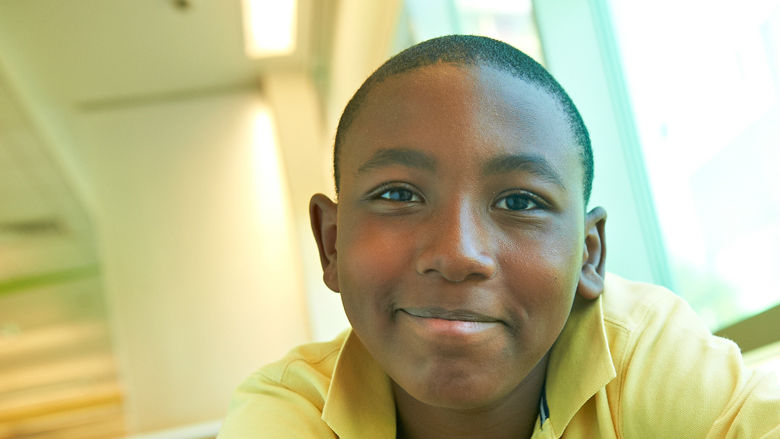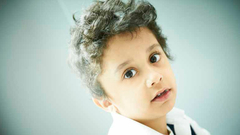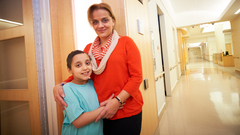Pediatric Brain Tumors - Neurosurgery
What are brain tumors?
A brain tumor occurs when there is a genetic alteration in the normal cells in the brain. The alteration causes the cells to undergo a series of changes that result in a growing mass of abnormal cells. Primary brain tumors involve a growth that starts in the brain, rather than spreading to the brain from another part of the body.
Brain tumors may be low grade (less aggressive) or high grade (very aggressive). The cause of primary brain tumors is unknown, although some tumors have germ line mutations and tend to be hereditary. The majority result from somatic mutations and are not hereditary.
Central nervous system tumors (tumors of the brain and spine) are the most common solid tumor in children. There are approximately 4,500 new brain tumors each year, and they are the most common cause of cancer deaths.
Why Choose Us?
The Cancer Center at Children’s Hospital of Philadelphia provides the newest, most advanced research and the most innovative treatments for all types of childhood cancer.
Tumor types
The majority of pediatric tumors are in the posterior fossa (60 percent). The most common tumors, in decreasing frequency, are: medulloblastoma, juvenile pilocytic astrocytoma (JPA), ependymoma, diffuse intrinsic pontine glioma (DIPG), and atypical teratoid rhabdoid tumor (ATRT).
The other 40 percent of pediatric brain tumors are in the cerebral hemispheres of the brain. These include astrocytomas, gangliogliomas, craniopharyngiomas, supratentorial primitive neuroectodermal tumors (PNET), germ cell tumors, dysembryoplastic neuroepithelial tumors (DNET), oligodendrogliomas, and meningiomas
Treatment
Surgery for pediatric brain tumors
Surgery is usually the first step in treating brain tumors in children. At Children’s Hospital of Philadelphia’s Pediatric Surgical Oncology Program, our goal is to remove all or as much of the tumor as possible while maintaining neurological function.
Pediatric brain tumor patients have a particular advantage when coming to Children’s Hospital of Philadelphia (CHOP) because of the extensive experience of our neurosurgeons and the close collaboration between neurosurgery, neuro-oncology, radiation oncology and diagnostic radiology.
Certain types of brain tumors located near the bottom of the skull, also called skull-base tumors, can be removed through the nose using tools called endoscopes. Because the base of the skull is close to the nostrils and roof of the mouth, your child’s surgeon can access the tumor more easily and safely with endoscopic endonasal surgery by going through the nostrils, minimizing the need for more invasive procedures.
Surgery is also performed for a biopsy — a sample of tissue taken to examine the types of cells found in the tumor. This helps establish a diagnosis and treatment plan. This is frequently done when the tumor is surrounded by sensitive structures that may be damaged by surgical removal.
At Children’s Hospital of Philadelphia, every patient being treated for a brain tumor is offered the opportunity to have their tumor entered into a CHOP-led international tumor bank to help accelerate discovery and improve care.
Other therapies used to treat brain tumors include:
- Chemotherapy (cancer drugs)
- Radiation therapy (high-energy rays that kill or shrink cancer cells)
- Proton therapy (a precise form of radiation therapy that is less damaging to surrounding tissue)
- Steroids to treat and prevent swelling in the brain
- High-dose chemotherapy, stem-cell rescue and blood and marrow transplantation
- Supportive care for the side effects of the tumor or treatment
- Rehabilitation to regain lost motor skills and muscle strength
- Continuous follow-up care to manage disease, detect recurrence of the tumor, and manage late effects of treatment
As with any cancer, prognosis and long-term survival vary greatly from child to child. Prompt medical attention and aggressive therapy are important for the best prognosis. Continuous follow-up care is essential for a child diagnosed with a brain tumor, because the side effects of radiation and chemotherapy — as well as second malignancies — can occur in survivors of brain tumors.



